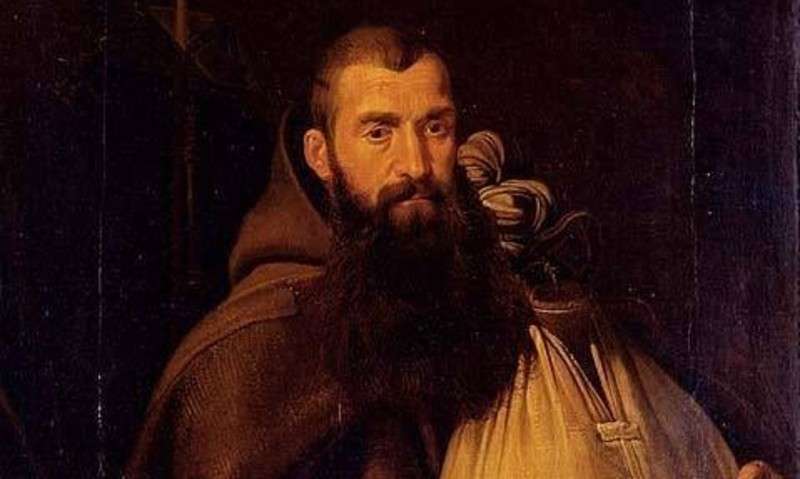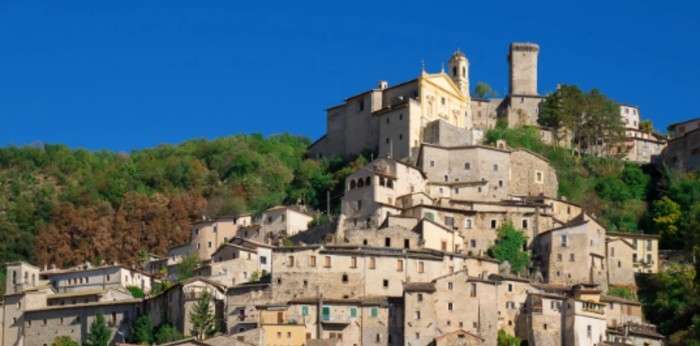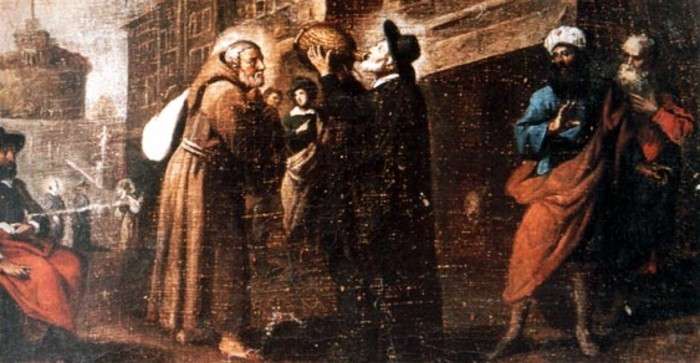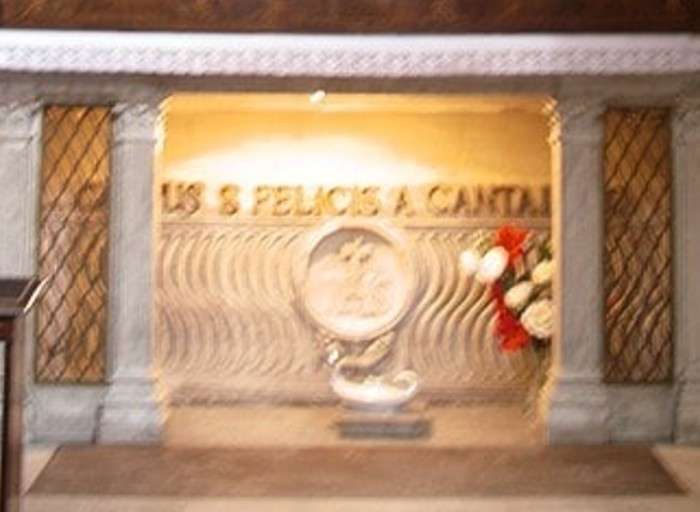Saint of the day 18th May 2023
ST.JOHN I, POPE AND MARTYR
ST. FELIX OF CANTALICE, CAPUCHIN FRIAR
St. John I, PopeFeast day: May 18
On May 18, the Catholic Church honors the first “Pope John” in its history. Saint John I was a martyr for the faith, imprisoned and starved to death by a heretical Germanic king during the sixth century.He was a friend of the renowned Christian philosopher Boethius, who died in a similar manner.
Eastern Catholics and Eastern Orthodox Christians also honor Pope St. John I, on the same date as the Roman Catholic Church.
The future Pope John I was born in Tuscany, and served as an archdeacon in the Church for several years. He was chosen to become the Bishop of Rome in 523, succeeding Pope St. Hormisdas.
During his papal reign Italy was ruled by the Ostrogothic King Theodoric. Like many of his fellow tribesmen, the king adhered to the Arian heresy, holding that Christ was a created being rather than the Second Person of the Holy Trinity.
Arianism had originated in the Eastern half of the Roman Empire during the fourth century, and subsequently spread among the Western Goths. By the sixth century the heresy was weak in the East, but not dead.
In 523, the Byzantine Emperor Justin I ordered Arian clergy to surrender their churches into orthodox Catholic hands. In the West, meanwhile, Theodoric was angered by the emperor’s move, and responded by trying to use the Pope’s authority for his own ends.
Pope John was thus placed in an extremely awkward position. Despite the Pope’s own solid orthodoxy, the Arian king seems to have expected him to intercede with the Eastern emperor on behalf of the heretics. John’s refusal to satisfy King Theodoric would eventually lead to his martyrdom.
John did travel to Constantinople, where he was honored as St. Peter’s successor by the people, the Byzantine Emperor, and the Church’s legitimate Eastern patriarchs. (The Church of Alexandria had already separated by this point.) The Pope crowned the emperor, and celebrated the Easter liturgy at the Hagia Sophia Church in April of 526.
But while John could urge Justin to treat the Arians somewhat more mercifully, he could not make the kind of demands on their behalf that Theodoric expected.
The gothic king, who had recently killed John’s intellectually accomplished friend Boethius (honored by the Church as St. Severinus Boethius, on Oct. 23), was furious with the Pope when he learned of his refusal to support the Arians in Constantinople.
Already exhausted by his travels, the Pope was imprisoned in Ravenna and deprived of food. The death of St. John I came on or around May 18, which became his feast day in the Byzantine Catholic tradition and in the Ordinary Form of the Roman Rite.
In the Extraordinary Form of the Roman Rite, he is celebrated on May 27, the date on which his exhumed body was returned to Rome for veneration in St. Peter’s Basilica.
Saint Felix of Cantalice: Humble Servant

On May 18, the Franciscan family celebrates the memory of Saint Felix of Cantalice (1515-1587), a Capuchin friar known for his life of humble service.
Devoted to prayer in the midst of work
Born in the village of Cantalice near Rieti, Italy, to a peasant family, Felix Porri worked as shepherd and then a ploughman. He was known to be devoted to prayer in the midst of his work. One day, while he was breaking in a team of young oxen, the animals were suddenly spooked and trampled on Felix, pulling the plow over his body. He survived, but this narrow escape caused him to rethink his life, and in 1543 he sought admission to the Capuchin friars in Cittaducale as a lay brother.

The village of Cantalice, Italy, birthplace of Saint Felix.
"Ass of the friars”
In 1548, Felix was sent to Rome, where for the next four decades he served as the "ass of the friars" (his own term!), going out each day with a sack to beg for food and other alms for the support of the fraternity. He was allowed to share the alms he gathered with the poor people he met in the streets, especially widows with children.
“Brother Deo gratias”
Over the years, Felix became a familiar figure among the people of Rome as he went about barefoot in all types of weather, singing improvised spiritual songs; the children, who flocked to him to hear his stories, called him "Brother Deo gratias" because of his cheerful habit of saying "Thanks be to God" for the alms he received.
Sharing profound homespun wisdom
He shared a profound homespun wisdom with all he met and became a close friend of Saint Philip Neri, who often sought Felix’s advice. Felix was beatified in 1625 and canonized in 1712, the first Capuchin to receive that honor.

Felix encountering Philip Neri on the streets of Rome.
Embodying the words of Saint Francis
"In that love which is God, I beg all my brothers, whether they are in engaged in preaching, praying, or manual labor, to strive to humble themselves in everything; not to boast or be self‐satisfied, or take pride in any good which God sometimes says or does or accomplishes in and through them. We must be firmly convinced that we have nothing of our own, except our vices and sins. And so we should be glad when we fall into various trials, and when we suffer anguish of soul or body . . . in this world, for the sake of life eternal."
"We must all be on our guard against pride and empty boasting and beware of worldly or natural wisdom. A worldly spirit loves to talk a lot but does little, striving for exterior signs of holiness that people can see, with no desire for true piety and interior holiness of spirit. . . The spirit of God, on the other hand, inspires us to mortify and look down upon our lower nature. . . and strives for humility, patience, simplicity, and true peace of spirit. . . "
"Let us refer every good to the most high Supreme God, and acknowledge that every good is his; and thank him from whom all good comes, for everything. . . And when we see or hear people speaking or doing evil or blaspheming God, let us speak well and do good, praising God, who is blessed for ever."—Francis of Assisi, "The Earlier Rule," chapter 17

Saint Felix's body lies in a sarcophagus beneath this altar in a chapel of the Capuchin church in Rome.
